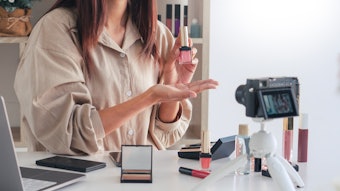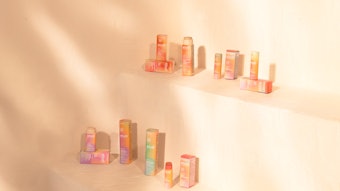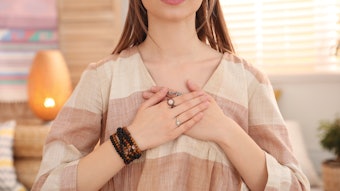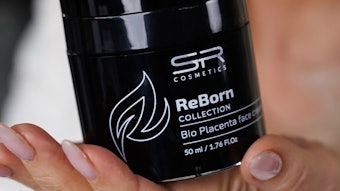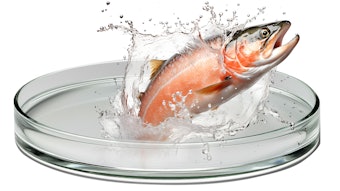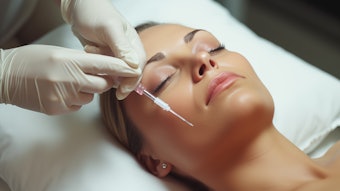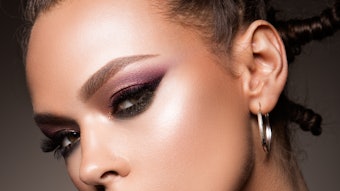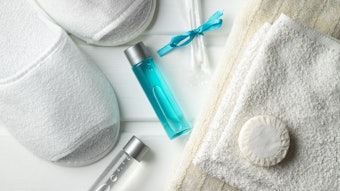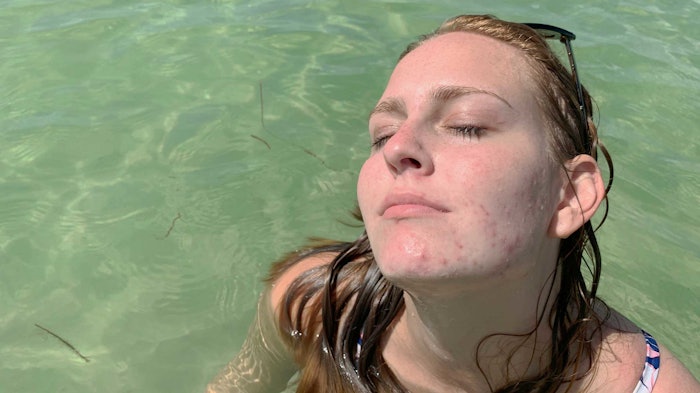
Recently, the Daily Mail highlighted the "insane" TikTok trend of intentionally sunburning skin to heal acne and boost immunity. You read right. According to the source, some influencers are both urging people to stop wearing sunscreen "for a health boost" and to sunburn skin to subsequently heal acne. Dermatologists and other experts are warning consumers against it but frankly, we found this terrifying and reached out to industry experts to uncover the truth — and the rationale behind this behavior. Following, we share examples of the influencer claims and responses from Kelly Dobos, Zoe Diana Draelos, M.D., and one sun protection expert from a major manufacturer (who wished to remain anonymous).
Log in to view the full article
Recently, the Daily Mail highlighted the "insane" TikTok trend of intentionally sunburning skin to heal acne and boost immunity. You read right. According to the source, some influencers are both urging people to stop wearing sunscreen "for a health boost" and to sunburn skin to subsequently heal acne. Dermatologists and other experts are warning consumers against it but frankly, we found this terrifying and reached out to industry experts to uncover the truth — and the rationale behind this behavior. Following, we share examples of the influencer claims and responses from Kelly Dobos, Zoe Diana Draelos, M.D., and one sun protection expert from a major manufacturer (who wished to remain anonymous).
See archived discussion on what the minimum SPF should be to avoid sunburn.
'Sunburning' Influencer Claims
Among the offending influencers promoting the practice of sunburning to heal acne is @melissanelsonn on TikTok, who shared with some 450K followers a short video of herself at the beach using the "sun & saltwater to burn off all my acne," she wrote. The video currently has 97,000+ views but that's not the scariest part. If you scan the comments, many viewers agreed this helps their acne.
Another is @emmazoeh, who shared a TikTok video with her 5,000+ followers captioned, "call me crazy, but sunburns help clear acne..." It's had more than 26,000 views. (On a side note, in a separate video, she claims "tanning once a week adds five years to your life." We'll address this some other day.)
Yet another influencer is Haley Wenthold, with 1,000+ followers (@livingfor_jesuss/TikTok), who was highlighted by the New York Post for "commanding" the sun to "burn off" her acne in a video clip that has had more than 1.8 million views (and 183,000+ "loves"). She also wrote about the sunburning-for-anti-acne trend in the video captions. Notably, we found several spoofs of her video as well, which may or may not be extending her reach.
See related discussion on why DIY sunscreens are a "don't."
'Sunburning' for Acne is Just an Illusion
Interestingly, dermatologist Daniel Sugai, M.D., (@drspf) responded in a TikTok clip of his own to Wenthold's, splicing his commentary alongside her video. He explained, it is "a very common misconception that the sun can help with acne overall."
Per Sugai, this is due in part to the ability of UVA and visible light to initially, for just a short time, decrease inflammation and P. acnes colonization. He adds, however, that skin also is exposed to UVB, which is responsible for sunburn and increases inflammatory cytokines IL-8 and IL-β that can worsen acne.
Dermatologist and C&T advisor Zoe Diana Draelos, M.D., weighed in with her thoughts on this trend. "There is no truth behind this claim that sunburn helps acne, but I can see how some might feel this statement is correct," she wrote. "The redness produced by a sunburn covers up the redness from the acne lesions; however, now you have a face full of inflammation instead of isolated acne lesions."
She continued, "The sun also decreases the skin's immune surveillance, chasing immune cells out of the skin. These cells are known as Langerhans cells and they protect the skin from skin cancer. This decreased immune response means the acne will appear less red because the immune system is less reactive."
Why Misguided Sunburning Claims to Treat Acne are Dangerous
Another sun protection expert (a non-dermatologist at a major manufacturer) shared several reasons why these types of misled TikTok videos about sunburn are "really dangerous."
- First, there is nothing beneficial in getting a sunburn, only pain due to the erythema, risk of serious skin lesions, discoloration and higher risk to develop skin cancer due to DNA damage. Now if we are talking about “normal” sun exposure (not leading to sunburn), the only beneficial effect I know is for psoriasis treatment and vitamin D synthesis but daily light is often enough to get the required amount of vitamin D in the blood, so no need to [add exposure] on the beach.
- Sun exposure does not boost immunity; on the contrary, it decreases immunity. That’s why you can see the upsurge of some viral infections such as lip herpes. It has been well-described that you see a decrease of Langherans cells (... that eliminate cellular damage) in the skin. This is a sort of adaptive process of the skin to limit overreaction after sun exposure due to the excessive accumulation of UV-induced DNA and cellular damage. After a few days, the skin retrieves its immunity to avoid the accumulation of damage that could lead to the occurrence of more serious lesions such as cancer.
- In the literature, there is data showing UV exposure can induce a transitory thickening of the epidermis, and this is how some people explain that skin lesions such as acne seem to disappear. In fact, this does not treat acne, it just hides lesions for a while and when the skin is not exposed to the sun any more, a rebound phenomenon is often observed, with a resurgence of even more acne pimples.
- Acne is associated with inflammation and a sunburn is a massive erythema/inflammation, so may it hide this aspect of redness temporarily.
- There is a real risk to expose acne lesions to the sun, and the more the skin is rich in melanin, the higher the risk of developing PIH (post-inflammatory hyperpigmentation), which is the local accumulation of melanin pigments around the pimple. Once this [is established], it takes some times to get rid of it.
She concludes: It really is “non-sense” to expose lesional skin to the sun. We highly recommend the contrary: to protect skin with a solar product when you have skin lesions (the same [goes] for scars).
Industry expert Kelly Dobos adds, "The trend of intentionally sunburning to clear acne is not only misguided, but dangerous. Sunburn significantly increases the risk of long-term damage, including premature aging and skin cancer. In fact, the risk of melanoma, considered the most dangerous form of skin cancer, increases with the number of sunburns experienced over a lifetime. It's crucial to prioritize skin health by using proven acne treatments and protecting the skin with sunscreen."
The Uphill Battle to Dispel Misinformation
The industry has been asking for years about how it can dispel widespread misinformation about not only dangerous trends like these, but also misunderstood ingredients that create an uphill battle for product developers.
"Trying to dispel misinformation on social media is like playing 'whack-a-mole,'" writes industry expert Kelly Dobos. "Something new pops up every day it seems, and this is really concerning."
In the end, it seems there's nothing consumers won't try to get rid acne (or address any cosmetic concern, for that matter). Regardless of how damaging and dangerous it could be, or how outlandish influencer claims may be on popular platforms like TikTok.
Still, we'll cite a study we've cited before from the Journal of Marketing Research, finding that debunking myths can have an impact on consumer behavior. This means we as an industry must speak out in order to be heard over all the noise.

